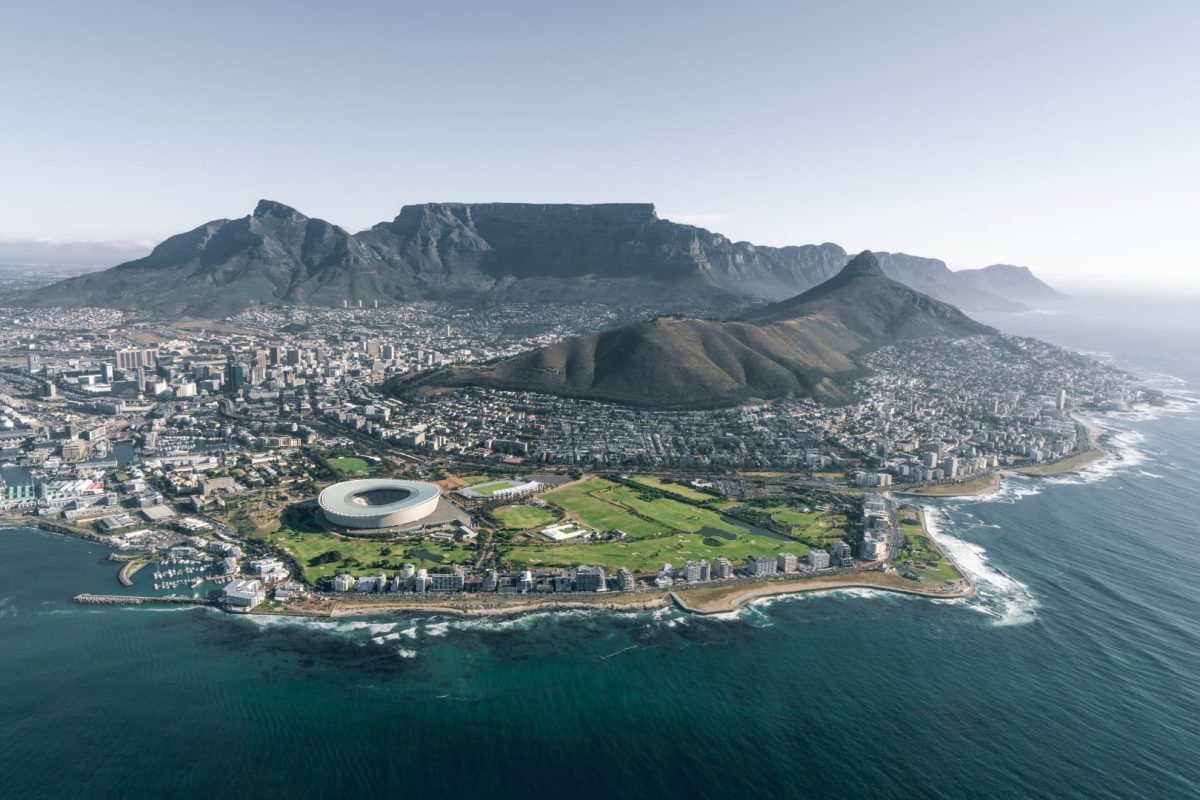How to Experience Cape Town’s Township Eco Tour in a Meaningful Way
If you are looking to go off the beaten path and experience Cape Town in a unique way, then the Township Eco Tour is for you. This small guided group excursion will take you through Langa Township, the oldest and largest township in Cape Town. You will have an opportunity to learn about the history and culture of this vibrant community, walk in the footsteps of a township resident, and give back by volunteering at a community garden and soup kitchen.Experience
The Township Eco Tour is a hands-on and immersive experience that allows you to see a side of Cape Town that many tourists do not get to experience. You will have the opportunity to interact with locals, see how they live and work, and lend a hand in community building efforts.Highlights
Some of the highlights of the Township Eco Tour include: – Riding the train from Cape Town Station to Langa Township – Taking a guided walk through the community to learn about its history and culture – Volunteering at a community garden and soup kitchen to give back to the community – Supporting local businesses by purchasing crafts and other merchandise – Getting a glimpse into the daily life of township residentsItinerary
The Township Eco Tour starts at Cape Town Station, the main train station serving the city center and surrounding areas. From there, you will take a train ride to Langa Township, a bustling community that is home to around 60,000 residents. During the train ride, you will get a sense of how many locals commute to work every day. Once you arrive in Langa, you will take a guided walk through the community with a local tour guide. You will learn about the history of the township and its significance during the apartheid era. You will also have an opportunity to interact with locals and learn about their daily lives, including their jobs, schools, and community organizations. After the walk, you will visit a community garden and soup kitchen. Here you will have a chance to lend a hand and volunteer your time to help with gardening and meal prep. You will learn about the importance of these community projects and how they are helping to make a difference in the lives of township residents. Finally, you will have an opportunity to support local businesses by purchasing crafts and other merchandise from street vendors. This gives you a chance to directly contribute to the local economy and connect with the community on a personal level.Important Information
– The Township Eco Tour runs daily and lasts approximately 4 hours. – The tour is suited for people of all ages and fitness levels, as there is not a lot of walking involved. – Guests are advised to dress comfortably and wear sunscreen, hats, and comfortable shoes. – Guests are also advised to bring bottled water and snacks, as there are no food vendors along the route. – The tour costs $44 per person and can be booked online at GetYourGuide.com.Book Your Tour Now
The Township Eco Tour is an experience that you will not soon forget. You will gain a deeper understanding of Cape Town’s history and culture, while also engaging in meaningful community building efforts. This tour is an excellent opportunity for those who want to get off the beaten path and experience Cape Town in a unique and authentic way. Book the tour here and start planning your unforgettable experience today.
Cape Town FAQ: All Your Questions Answered
Are you planning a trip to Cape Town? Maybe you are already there and looking for answers to some of the most frequently asked questions about the city? From the best time to visit to the top things to do, we have got you covered. Here are the the answers to all your questions in one comprehensive FAQ guide on Cape Town:When is the best time to visit Cape Town?
Cape Town is beautiful all year round, but the best time to visit depends on your preferences. The peak tourist season is from November to February, when the city’s warm, dry weather draws in visitors from around the world. However, Cape Town can be quite busy during these months, and prices tend to be higher. If you want to avoid the crowds and enjoy lower accommodation rates, visit during the shoulder months of March to May or September to November. Winter months from June to August can be quite cold and rainy, but offer a unique experience to see the beautiful city landscapes covered in mist.What are the top attractions in Cape Town?
Cape Town is full of diverse cultural and natural attractions that offer something for everyone. Some of the top attractions include: – Table Mountain: A must-do attraction in Cape Town, Table Mountain offers a scenic cable car ride to the top of the mountain for panoramic views of the city. – Robben Island: Learn about South African history and visit the prison where Nelson Mandela was held captive for over 18 years. – Kirstenbosch Botanical Gardens: Located at the eastern foot of Table Mountain, the gardens offer a variety of indigenous and exotic plant species. – Cape of Good Hope: Located at the southwestern tip of the Cape Peninsula, this iconic landmark provides picturesque views of the Atlantic Ocean and Indian Ocean. – V&A Waterfront: A shopping, dining and entertainment hub in Cape Town, located on the harbor with gorgeous views of Table Mountain. – Wine farms: Cape Town’s wine farms are world famous for their beauty and scenic surroundings. Make sure to visit some of the most popular ones such as Groot Constantia, Stellenbosch and Franschhoek.What are the best beaches in Cape Town?
Cape Town is known for its beautiful beaches, and there are several noteworthy ones to visit. Here are a few of Cape Town’s best beaches: – Clifton Beaches: Located on the Atlantic Seaboard, the Clifton Beaches are a series of four secluded beaches popular for sunbathers and swimmers. – Camps Bay Beach: A trendy and vibrant beach with a bustling strip of cafes and restaurants. – Muizenberg Beach: Known for its long stretches of white sand and surfers, this beach is located on the False Bay coast. – Llandudno Beach: A remote beach located at the base of a steep mountain, known for its natural beauty and clear waters. – Boulders Beach: A beach famous for the curious colony of African Penguins that call it home.Where are the best places to go hiking in Cape Town?
Cape Town’s landscapes offer a great opportunity for hiking enthusiasts. Here are some of the top hiking spots: – Table Mountain: Table Mountain offers several hiking routes catering to all levels of hiking experience. The easiest route is through Platteklip Gorge. – Lion’s Head: A popular hiking spot in Cape Town boasting stunning views of the city and located only 30 minutes from the city centre. – Kirstenbosch Botanical Gardens: The gardens offer a range of hiking trails through the indigenous fynbos vegetation. – Silvermine Nature Reserve: The nature reserve offers a variety of trails through the mountain fynbos and scenic views of the surrounding landscapes.What are some must-try foods in Cape Town?
Cape Town is a melting pot of different cultures, and its cuisine reflects that. Here are some must-try foods: – Bobotie: A traditional South African dish made from spiced minced meat and egg custard topping. – Biltong: A type of cured meat similar to beef jerky, but with a distinct flavor and texture. – Cape Malay curry: A spicy curry with a unique blend of spices influenced by Malay cuisine. – Samoosas: A savory pastry filled with spiced meat, vegetables, or cheese. – Gatsby: A famous Cape Town sandwich with a variety of fillings such as polony, chips and special sauce. – Rooibos tea: A popular South African tea made from leaves of the rooibos plant.Is Cape Town Safe?
As with any major city, there are certain safety concerns in Cape Town. However, it is generally a safe city with a lower crime rate than many other cities in South Africa. It is still important to exercise caution and avoid walking alone at night in unlit or deserted areas. It is also recommended to keep your belongings close to you in crowded areas, and avoid displaying valuable items in public.What is the currency used in Cape Town?
The official currency of South Africa is the South African Rand (ZAR). Most hotels, restaurants and tourist attractions accept credit cards, but it is recommended to have cash for smaller establishments and tipping.What is the time zone in Cape Town?
Cape Town operates on South African Standard Time (GMT+2).Do I need a visa to visit Cape Town?
Visa requirements for South Africa vary depending on your country of origin. Citizens of many countries do not require a visa for stays up to 90 days. It is recommended to check visa requirements for your country before booking your trip.What is the best way to get around Cape Town?
There are several ways to get around Cape Town, including: – Car rental: It is recommended to rent a car if you plan on exploring beyond the city limits. – Public transport: Cape Town’s public transport includes MyCiti buses and trains. However, the train system is quite limited and is not recommended for tourists. – Taxis: There are several taxi companies in Cape Town, including metered taxis and Uber. – Walking tours: Many tour companies offer walking tours of Cape Town’s major attractions.What language is spoken in Cape Town?
Cape Town is a multilingual city with several official languages, including English, Afrikaans, isiXhosa, and isiZulu. English is widely spoken and understood, particularly in tourist areas. In conclusion, Cape Town is a stunning city with a rich cultural heritage, diverse natural landscapes and delicious cuisine. We hope this FAQ guide has provided you with all the information you need for a memorable trip to Cape Town.
How to Spend Your Time as a Tourist in Cape Town
Cape Town is undoubtedly one of the most beautiful cities in the world, and draws in millions of tourists every year with its breathtaking scenery, fascinating history, and vibrant culture. If you’re planning a trip to Cape Town and wondering how to make the most of your time there, this guide will give you some ideas for things to see and do.1. Visit Table Mountain
One of the most iconic landmarks in Cape Town is Table Mountain, which towers over the city and provides stunning views of the surrounding landscape. There are several ways to experience Table Mountain, including hiking to the top, taking the cable car, or even abseiling down the sheer cliffs. Whatever method you choose, make sure to take some time to appreciate the views and snap a few photos.2. Explore the Cape Peninsula
Another must-see attraction in Cape Town is the Cape Peninsula, which stretches from the city’s southern suburbs all the way to the Cape of Good Hope. There are several ways to explore the peninsula, including driving, cycling, or joining a guided tour. Along the way, you’ll encounter picturesque beaches, charming seaside towns, and rugged coastal cliffs.3. Visit Robben Island
Robben Island is a small island off the coast of Cape Town that served as a political prison during the apartheid era. Nelson Mandela famously spent 18 years of his imprisonment there, and the island has since become a symbol of the struggle against apartheid. Visitors can take a tour of the prison and learn about its history, as well as enjoy the scenic ferry ride to and from the island.4. Learn about South African History
Cape Town has a rich and complex history, and there are several museums and historical sites around the city that are worth visiting. Some of the most notable include the District Six Museum, the Apartheid Museum, and the Slave Lodge. These museums offer a fascinating glimpse into the country’s past, and will help you understand the context of many of the sights you’ll encounter around the city.5. Experience the Local Cuisine
South African cuisine is known for its rich flavors and unique blend of African, European, and Asian influences. There are several restaurants in Cape Town where you can sample these flavors, including the Bo-Kaap Kombuis, the Test Kitchen, and Mzansi. Make sure to try some local specialties, such as biltong (dried and salted meat), bobotie (a spicy meat dish), and koeksisters (a sweet fried pastry).6. Take a Tour of the Winelands
Cape Town is surrounded by some of the most beautiful winelands in the world, and taking a wine tour is a must for any food and wine enthusiast. There are several wine routes to choose from, including Stellenbosch, Paarl, and Franschhoek. Along the way, you’ll taste some of the region’s finest wines, as well as enjoy the stunning scenery of rolling vineyards and lush green hills.7. Explore the City’s Neighborhoods
Finally, one of the best ways to experience Cape Town is by exploring its diverse and vibrant neighborhoods. Each neighborhood has its own unique character, from the colorful Bo-Kaap district to the hip and trendy Woodstock. Take some time to stroll through the streets, enjoy the local street art, and stop in at some of the independent shops and cafes that make these neighborhoods so special.Book Your Tour Now
Cape Town is a city that truly has something for everyone, whether you’re a nature lover, a history buff, a foodie, or just looking to explore a vibrant and diverse culture. By following these tips, you’ll be able to make the most of your time in this amazing city and create memories that will last a lifetime.Table of Contents

